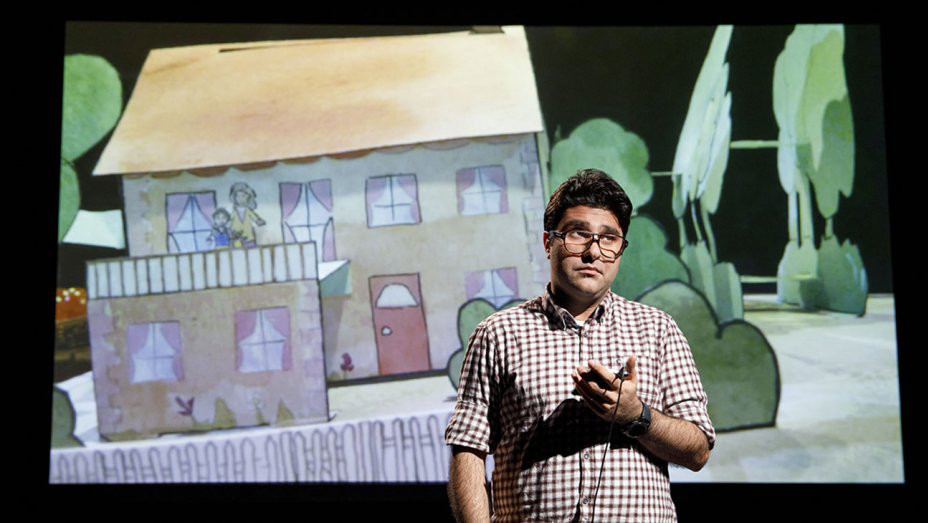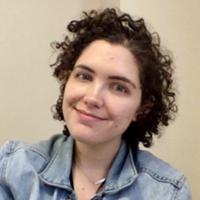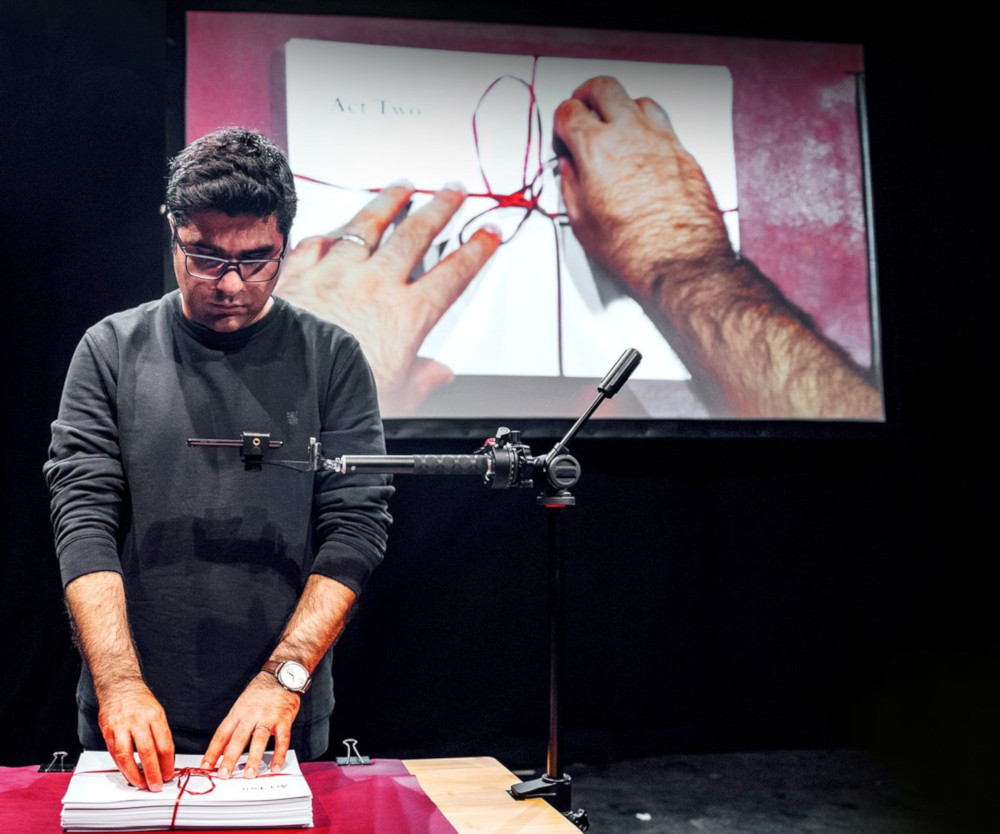After getting my undergraduate degree back in 2014, I did what any directionless sociology grad with passable French would do: I spent a year teaching English in France. Although, I was paid next to nothing, that “next to” afforded me fresh baguettes, cheap wine, and the opportunity to travel on a budget.
Cheap travel, for all its drawbacks, is still one of the best ways to meet people from other countries. Every dingy hostel offers a random selection of potential new friends, strangers stumbling through language barriers in a good faith effort to connect. Everyone is on a journey, consciously collecting experiences, searching for what makes us universally human. Everyone is foreign, and that’s perfectly okay.
Iranian playwright Nassim Soleimanpour’s newest work Nassim is a little like holing up at a hostel.
The autobiographical piece gives us a look at the playwright’s life, both in Iran and while touring his show. He teaches the audience some Farsi, and we in turn try to teach him some English. He does this all with the help of local actors drawn from the community where the show is being presented.
In Vancouver, this selection is an eclectic and diverse group including Carmen Aguirre, Adam Grant Warren, Maiko Yamamoto, Pippa Mackie, and Tetsuro Shigematsu. Each night, a new performer joins Soleimanpour on stage, with the seeming intent of exploring cross-cultural boundaries, the inherent difficulties of communication, and the siren call of home.
The guest performer’s lines are projected onto the screen while Soleimanpour flips the pages as they read. The narrative is at times charming, poetic, cheeky and touching.
At an age when I was wandering freely, Soleimanpour was trapped at home. He refused military service in Iran and couldn’t leave his country until age 32. His plays have never been staged in Iran, but he achieved fame in 2010 with White Rabbit Red Rabbit, performed in more than 20 languages. Like Nassim, it explored the shock, and pleasures, of foreign immersion – actors read live from pages they’ve never seen. Those actors, during the 42-week New York run of White Rabbit Red Rabbit included Whoopi Goldberg, F. Murray Abraham and Cynthia Nixon.
The first two nights of Nassim at The Cultch featured performances from Carmen Aguirre and Adam Grant Warren, two experienced actors with their own bodies of work, both as writers and performers. Aguirre, who has written a brilliant memoir of her refugee’s escape from Chile under Pinochet’s military dictatorship, opened White Rabbit Red Rabbit when it played at The Cultch. Some leave home for a lark, others are forced by harrowing events.
Nassim, however, is no hard-hitting political commentary. In interviews he has called Iranian theatre “young,” implying patrons there wouldn’t care for more experimental work. He has also referenced heavy censorship by the government. But perhaps the most obvious reason this show has never been performed in Iran is that this show wasn’t written for Iranians. That’s not to say an audience in Tehran wouldn’t enjoy it — it’s simply that much of the show depends upon a language gap between the playwright and the audience: something than can only be found abroad.

Soleimanpour has called Nassim a conversation. And to be fair, there is a degree of interaction between the audience, the performers and playwright himself. But, the conversation is more of a monologue than a dialogue. Soleimanpour projects onto the invited actors what he thinks they will say. Lines like, “What’s my motivation, here?” imply that there is some kind of genuine interaction taking place. But if this was a real conversation, the audience might have the opportunity to hear Aguirre talk about her own experiences, which are more overtly dramatic than those on offer in Nassim.
Considering how many interesting actors Soleimanpour has at his disposal, this kind of underutilization indicates one of the major problems with the production. Simply that it’s really a one-man show. Whoever else is onstage on a given night is of much less importance than one might assume, given the conceit of the play.
On the two nights I attended, Aguirre and Warren’s very different personas had little bearing on the narrative, aside from a couple of minor discrepancies in the flow of the work. And here is where the hostel experience can fail the seeker. What if the person who does the most talking makes you wish for something deeper, something more? You’ve just met and you’re already beginning to wonder if bigger adventure might be found outside in the streets full of others.
Although Soleimanpour is running the show, and has been rehearsing it for years, what we learn of him is not very profound. The show introduces Vancouver audiences to a few bits of the Farsi language. But little else about the author’s life and experience is explored other than his relationship with his mother and his love of language.
With war hovering on the horizon, the opportunity to break down and genuinely explore how Iranian artists are contending with their history and future offers a critical chance to deeply engage with the country and its people. Nassim has a wealth of material to mine. Iran is a country with a rich cultural heritage. Iranian filmmakers like Abbas Kiarostami and Asghar Farhadi are considered some of most influential in the world. Up until the Iranian Revolution, Iranian playwrights were known for their innovation.
Soleimanpour may be a charming and affable performer, but this lack of depth keeps Nassim from being a fully engaging work.
Leaving the theatre that first night, I turned to my friend and asked what she had thought of the play. “You know, in some ways, I envy him,” she said. The playwright at least had a sense of home, even if he’d been forced to leave it behind. For my friend, born in Pakistan, raised in Saudi Arabia and currently residing in Canada, the concept of “home” is more complicated.
At some level, home becomes more complicated for anyone who has spent a significant amount of time moving around. Geographical distance from one’s place of birth can offer a chance to breathe, to think and to question what we normally take for granted. It can also give us a sense of comradery. “For one moment, no one was a foreigner,” reads a line from Nassim. In a cheap hostel kitchen at two a.m., we’re all equals. ![]()
















Tyee Commenting Guidelines
Comments that violate guidelines risk being deleted, and violations may result in a temporary or permanent user ban. Maintain the spirit of good conversation to stay in the discussion.
*Please note The Tyee is not a forum for spreading misinformation about COVID-19, denying its existence or minimizing its risk to public health.
Do:
Do not: